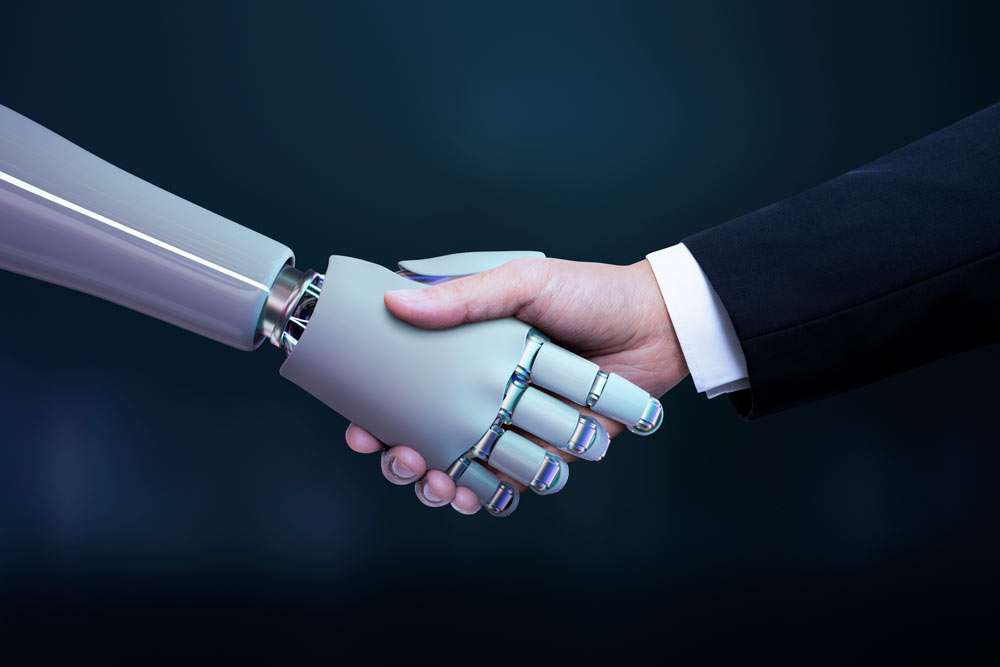Artificial Intelligence (AI) technology is revolutionizing the business world by transforming the way companies operate, make decisions and interact with customers. With its ability to analyze massive amounts of data, automate processes, and learn from patterns, AI provides businesses with powerful tools to gain insights, improve efficiency, and drive innovation. In this article, we will delve into the importance of artificial intelligence in business and explore how it is driving innovation, enabling competitive advantage, and shaping the future of various industries.
Artificial Intelligence
Artificial Intelligence refers to the development of intelligent machines that can mimic human cognitive abilities. Through various techniques like machine learning and deep learning, AI systems can analyze data, learn from experience, and perform tasks that traditionally required human intelligence, leading to a wide range of applications and advancements across industries.
Artificial Intelligence in Business
Artificial Intelligence is revolutionizing the way businesses operate, make decisions, and engage with customers. By harnessing the power of AI technologies, organizations can unlock new opportunities, improve efficiency, and gain a competitive edge in today’s rapidly evolving business landscape. As AI continues to advance, businesses that embrace this technology will be better equipped to navigate the challenges and seize the immense potential it offers.
Benefits of Artificial Intelligence in Business
With its ability to analyze vast amounts of data, recognize patterns, and make intelligent decisions, AI is empowering organizations to gain valuable insights, enhance productivity, streamline operations, and deliver personalized experiences to customers. Here are some key areas where AI is making a significant impact in the business landscape:
Enhanced Decision-Making
AI-powered systems can process and interpret colossal amounts of data in real-time, providing businesses with actionable insights. By leveraging machine learning algorithms, companies can make data-driven decisions based on accurate predictions generated by AI models. This enables organizations to mitigate risks, identify market trends, optimize operations, and improve overall business performance. Furthermore, AI assists in automating routine tasks, freeing up human resources to focus on high-value activities that require creativity and critical thinking.
Customer Experience Transformation
In today’s era of hyper-personalization, businesses are striving to create exceptional customer experiences. AI plays a pivotal role in achieving this goal by analyzing customer preferences, behavior patterns, and feedback to offer tailored recommendations and personalized interactions. Through chatbots, virtual assistants, and natural language processing, AI facilitates seamless communication, resolves queries promptly, and enhances customer satisfaction. Moreover, AI-powered sentiment analysis enables companies to gauge customer sentiment, enabling them to respond proactively and address concerns before they escalate.
Operational Efficiency and Automation:
AI-driven automation is revolutionizing business processes by eliminating repetitive and mundane tasks. From supply chain management to inventory control, AI systems can optimize operations, minimize errors, reduce costs, and enhance efficiency. Machine learning algorithms empower businesses to automate complex decision-making processes, such as demand forecasting, resource allocation, and fraud detection. By employing AI-powered robotic process automation (RPA), organizations can streamline workflows, enhance productivity, and achieve higher accuracy rates, resulting in significant time and cost savings.

Advanced Data Analytics
AI has transformed the way businesses analyze data, enabling them to derive meaningful insights and drive innovation. With AI algorithms capable of exploring complex patterns within datasets, companies gain deeper understanding and uncover hidden correlations that human analysts might miss. Predictive analytics, powered by AI, offers the ability to forecast market trends, customer behavior, and demand patterns. This empowers organizations to optimize inventory, develop targeted marketing campaigns, and make strategic business decisions with higher precision, reducing the element of uncertainty.
Risk Management and Security:
In an increasingly interconnected world, businesses face numerous risks, including cyber threats, fraud, and regulatory compliance issues. AI provides robust solutions for risk management and security. Machine learning algorithms can detect anomalies and patterns indicative of fraudulent activities, preventing potential financial losses. AI-powered cybersecurity systems can identify and mitigate vulnerabilities proactively, safeguarding sensitive data and protecting against cyber attacks. Furthermore, AI facilitates compliance with regulations by automating processes for data privacy and ensuring adherence to legal requirements.
Industry-Specific Applications:
AI is reshaping various industries, unlocking new possibilities and opportunities. For example: in healthcare, AI aids in disease diagnosis, drug discovery, and personalized medicine. Manufacturing benefits from AI-driven predictive maintenance, optimizing production schedules, and quality control. Retail utilizes AI for inventory management, demand forecasting, and personalized shopping experiences. Transportation leverages AI for route optimization, autonomous vehicles, and traffic management systems. These examples demonstrate that AI is not just a buzzword but a transformative technology that holds immense potential across diverse sectors.
Future of AI in Business
The future of AI in business is both promising and transformative. As technology advances, AI is expected to play an increasingly vital role in shaping the way businesses operate and make decisions. Some key points that indicate the future of AI in business are shortly discussed in the following part:

Intelligent Automation: AI-powered automation will continue to revolutionize business processes. As AI algorithms become more sophisticated, businesses can automate complex tasks, streamline operations, and optimize resource allocation. Intelligent automation will enable companies to achieve higher efficiency levels, reduce costs, and improve overall productivity.
Hyper-Personalization: AI will drive hyper-personalization in customer experiences. By leveraging AI-based analytics and machine learning, businesses will be able to gather comprehensive customer data, preferences, and behavior patterns. As a matter of fact this data will empower companies to offer highly personalized recommendations, products, and services, leading to increased customer satisfaction and loyalty.
Advanced Data Analytics: AI will further enhance data analytics capabilities for businesses. With the ability to process and analyze vast amounts of data quickly, AI algorithms will uncover deeper insights, trends, and correlations. In brief this will enable companies to make more accurate predictions, identify market opportunities, and optimize their decision-making processes.
Augmented Decision-Making: AI will augment human decision-making by providing real-time insights and recommendations based on data analysis. AI-powered systems will assist business leaders in making informed decisions, reducing the element of uncertainty, and mitigating risks. The collaboration between humans and AI will improve strategic planning, resource allocation, and overall business performance.
Autonomous Systems: The future will witness the rise of autonomous systems powered by AI. Self-driving vehicles, drones, and robotic process automation will become more prevalent across industries. Hence these autonomous systems will revolutionize transportation, logistics, manufacturing, and other sectors, delivering increased efficiency, safety, and cost-effectiveness.
Enhanced Cybersecurity: As cyber threats continue to evolve, AI will be crucial in strengthening cybersecurity measures. AI algorithms will detect and respond to security breaches in real-time, preventing data breaches, identifying anomalies, and enhancing overall system security. AI will continuously learn and adapt to new threats, making cybersecurity systems more robust and effective.

Natural Language Processing: AI’s natural language processing capabilities will continue to advance, leading to more sophisticated conversational interfaces. Chatbots and virtual assistants will become even more human-like, capable of understanding context, emotions, and complex queries. In a word, this will revolutionize customer support, enabling businesses to provide seamless and personalized interactions with customers.
Ethical Considerations: The future of AI in business will necessitate a focus on ethical considerations. As AI technologies become more pervasive, companies will need to address issues of transparency, fairness, and bias in AI algorithms. So, ethical frameworks and guidelines will be crucial in ensuring responsible and accountable use of AI technology.
In summary, AI plays a vital role in modern businesses. It drives automation, enables data-driven decision-making, enhances customer experiences, facilitates predictions and forecasts, augments human capabilities, and provides a competitive edge. Also, the future of AI in business is dynamic and transformative. As AI technology continues to advance, businesses will harness its power to drive efficiency, innovation, and competitive advantage. From intelligent automation and hyper-personalization to advanced analytics and autonomous systems, AI will reshape industries and redefine how businesses operate in the years to come.. Embracing AI is essential for businesses aiming to thrive in the digital era and meet evolving customer expectations.

0 Comments